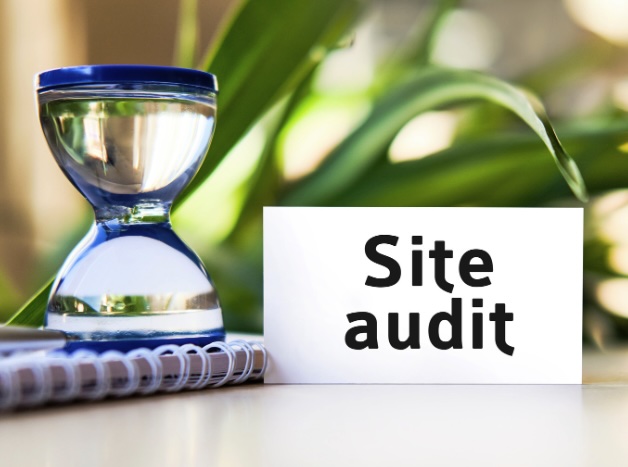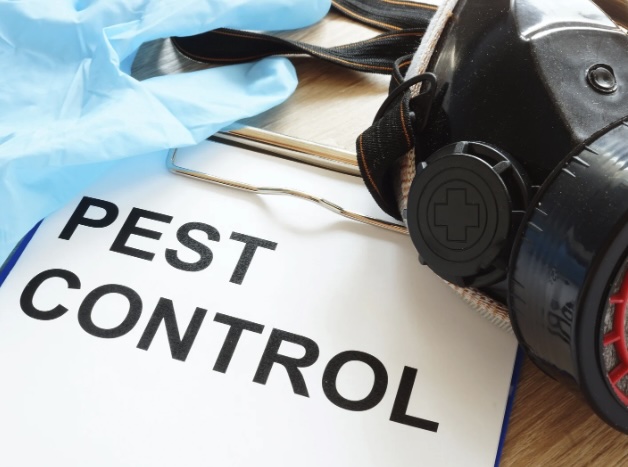The area of digital marketing is not easy to navigate, in the case of pest control companies. Nonetheless, mastery in SEO is the road to success. This guide focuses on the particular strategies and the most effective tactics that will lead pest control companies to increase their online visibility and get more clients. Starting from keyword optimization and local SEO, to engaging content creation and gaining an understanding of the technical aspects of SEO, this guide is a great roadmap for pest control companies looking to succeed in the digital market.
Pest Control SEO: The Gateway to Online Visibility
Search Engine Optimization (SEO) is one of the most powerful tactics that can drive you to online visibility and potential customers. This section will cover pest control SEO basics, why it’s essential to your business, and how it can set you apart from the competition in the crowded online marketplace.
Understanding Keywords
The SEO keywords are the cornerstone of SEO and they directly determine the ranking of your websites in SERPs. Pest control companies need to know which keywords to use to catch the attention of people who are looking for pest management services. Here’s how you can harness the power of keywords effectively:
- Keyword Research: Carry out thorough research to find the most relevant keywords and phrases potential customers are likely to use in order to find the pest control services. Benefit from tools such as Google Keyword Planner, SEMrush, and Moz Keyword Explorer to find high-volume and low-competition keywords in your industry.
- Long-tail Keywords: Even though general keywords such as “pest control” play a crucial role, utilization of long-tail keywords corresponding to your services and location would make it possible to aim at a kind of niche audience. For instance, “excellent termite removal services in New York City” or “trusted rodent removal professionals around me” long-tail keywords that can lead to the most qualified leads.
- Keyword Placement: When you have defined relevant keywords, expertly integrate them within the content of your site, such as the page titles, meta descriptions, headings, and body text. However, this should not lead to keyword stuffing that would make your web site lose its credibility and readability.
On-page Optimization
On-site optimization is all about optimizing different parts of the website to make it more relevant and visible to search engines. When your website is designed both for the search engines and the users, you can improve its performance and get free organic traffic. Here are key on-page optimization tactics for pest control SEO:
| On-page Optimization Tactics | Description |
| High-quality Content | Generate informative and entertaining content that deals with the typical pest control worries, provides solutions, and proves your expertise. Naturally, keyboard relevant keywords within your content as they make it to appear on the SERPs. |
| Optimized Meta Tags | Compose killer meta title and description for each webpages, include primary keywords to lure the users to click to your website from the search result. |
| User-friendly URLs | Make sure that the URLs of your website are descriptive, brief, and comprise relevant keywords. Do not use generic or cryptic URLs that give minimal information to users and search engines. |
| Mobile Optimization | With the increasing use of mobile devices, optimize your website for mobile responsiveness to provide users with a seamless browsing experience across all devices. |
| Page Loading Speed | Improve the speed of your website’s loading, through image optimization, minimizing the HTTP requests and leveraging caching techniques. In addition to improved user experience faster loading speed also leads to better search rankings. |
Off-page Tactics
Off-page strategies are actions that happen beyond your site but add to the authority, credibility, and visibility of your website in search engine rankings. Pest control business through the implementation of a strong off-page SEO plan can get precious backlinks and have great online reviews. Here are essential off-page tactics to consider:
- Link Building: Get strong backlinks from the authoritative sites in the pest control niche, local directories as well as relevant blogs. Natural link building communicates to search engines that your site is credible and deserves to be higher in the rankings.
- Local SEO: Make your online presence local-search-friendly by claiming and optimizing your Google My Business listing, maintaining NAP (Name, Address, Phone Number) consistency, and actively sourcing reviews and citations from satisfied customers.
- Social Media Engagement: Interact with your followers on social media sites such as Facebook, Twitter, and Instagram to create brand awareness, develop customer relationships, and advertise your pest control services. Publish informative content, reply to questions quickly, and foster user-generated content to improve engagement and visibility.
- Online Reputation Management: Control and manage your reputation online by actively responding to customers’ reviews, addressing negative feedback in a prompt and mature manner, and featuring positive testimonials on your website and social media accounts. A positive online reputation not only promotes trust and credibility but also increases the probability of getting higher rankings in search results.
SEO for Pest Control Companies: Tailored Strategies
Unlike typical SEO methods, specialized techniques respect the particular needs and obstacles of the pest control industry. The part will illuminate the need by pest control companies to have an SEO that is customized with regard to some major elements like local SEO, content marketing and mobile optimization.
Local SEO
Local SEO is an important factor in enabling pest control companies to capture clients within their field of operation. As more and more consumers resort to search engines to locate local businesses, making your online presence local search-friendly is vital for visibility and customer acquisition. Here’s how pest control companies can optimize their local SEO:
- Google My Business (GMB) Optimization: Claim and improve your Google My Business listing by entering your business details such as your business name, address, phone number, and hours of operation. Maintain uniformity on all online directories and platforms to boost location-based search rankings.
- Local Keyword Targeting: Do keyword research to find local search words and phrases that are related to your pest control services and target place. Integrate these words to your website, meta tags, and GMB profile for the purpose of regional visibility and qualified lead generation.
- Local Citations and Listings: Create citations in high-class local directories, platforms, and review sites to position your business as an authority in your local market. Maintain business information consistency and updatedness in all citations and this will minimize confusion and will lead to better search engine rankings.
Content Marketing
Engagement and education of possible customers are some of the key roles played by content marketing, where search engine visibility of your website is improved as well. Informative and interesting content about popular pest-related issues and how to handle them is a must for pest control companies. Here are some content marketing strategies tailored to pest control companies:
- Educational Blog Posts: Post helpful blogs on prevalent pest problems, preventive measures, treatment procedures and industry trends. Add pertinent keywords seamlessly to your content so that your search engine visibility is enhanced and organic traffic is drawn to your site.
- Case Studies and Testimonials: Your website should display successful pest control projects, client testimonials, and case studies to proclaim your competence and gain the trust of your possible customers. Demonstrate with live situations, your company ability to solve the pest-related issues and satisfy the customer’s needs.
- Visual Content: Use graphical elements like infographics, videos, and presentations to communicate most complex information in an attractive and straightforward manner. Visual content boosts user interaction and also promotes likelihood of social sharing and backlink acquisition which in turn positively influence your websites SEO performance.
Mobile Optimization
Due to the exploitation of mobile devices, mobile responsiveness is critical for SEO success for your online property. Optimization for mobile guarantees a good performance of your website on smartphones and tablets, enabling visitors to have consistent hassle-free browsing on all devices. Here are key considerations for mobile optimization:
- Responsive Web Design: Use a responsive web design technique to make your website fit perfectly into different screen sizes and resolutions. With a responsive design, you do not need two different versions of your website, for the mobile and desktop, which is a great way to make maintenance easier and to enhance user experience.
- Page Speed Optimization: In order to speed up your website’s speed of loading, do the following: minimize redundant elements, compress images, and use browser caching. A website with fast loading not only improves user experience but also helps in higher search engine rankings, especially on mobile devices where speed is of the essence.
- Mobile-friendly Content: Develop mobile-friendly content that is readable and navigable with clear calls to action and optimized formatting. Stay clear of Flash-based content and huge chunks of text that can deteriorate the quality of mobile user interaction, consequently, causing higher bounce rates.
Pest Control SEO Services: Elevating Your Online Presence

To set themselves apart, pest control companies will often utilize pest control SEO services. The professional providers offer a variety of customized services created to increase the online presence and search engine rankings of pest control companies. In this part, we will discuss the main services that the companies that offer pest control SEO provide such as website audits, keyword research, and link-building strategies.
Website Audit
The complete website audit is the starting point in revealing areas that need improving and in optimizing your site for better search engine performance. Pest control SEO services do complete audits to evaluate the current state of your website’s SEO and detect areas for betterment. Here’s what a website audit typically entails:
- Technical SEO Analysis: Assess the technical characteristics of your website such as site architecture, URL structure, page speed, mobile adaptiveness, and crawlability. Find any issues or mistakes that may prevent search engine crawlers from indexing and ranking your site correctly.
- On-page SEO Evaluation: Evaluate on-page factors like meta tags, headings, content quality, keyword density and use, and internal link profile. Make sure the optimization of each page is done for relevant keywords and follows the best practices of SEO.
- Off-page SEO Assessment: Evaluate the number and quality of backlinks that lead to your site from other sites. Recognize the ways of link building and off-page optimization to increase your website’s authority and trust in the eyes of search engines.
Keyword Research
One of the most important elements of a successful SEO tactic of pest control companies is keyword research as it allows them to find the most appropriate and valuable keywords to their business. The services of pest control SEO undertake detailed keyword research to find out words and phrases that the customers are using to search for pest control services. Here’s how keyword research is typically conducted:
- Identifying Seed Keywords: To start, identify wide seed keywords like pest control, exterminator, or termite treatment for pest control services.
- Expanding Keyword List: Find seed keywords using keyword research tools like Google Keyword Planner, SEMrush, or Moz Keyword Explorer and acquire more terms. Take into account aspects like the volume of searches, level of competition and how relevant it is to your audience.
- Long-tail Keyword Analysis: Research long-tail keywords for your services, locations and target audience characteristics. Long-tail keywords usually have fewer searches but greater conversion opportunities since they represent more precise user intent.
Link Building
Link building is an important aspect of the SEO process that entails getting high-quality backlinks from influential sites in order to increase your site’s authority and search engine rankings. Pest control SEO services create refined link-building programs that enable you to have a solid link network operating to your site. Here’s how link building is typically approached:
- Competitor Analysis: Analyze your competitors backlink profiles in detail to hunt for link opportunities. Figure out the websites, directories, and publications that are relevant to your industry and where your website could be featured or mentioned.
- Content Creation and Outreach: Produce top-notch, highly informative content that brings value to your target market and relates to your industry. Contact appropriate websites, bloggers, and influencers to provide your content and get backlinks to your site.
- Local Link Building: Concentrate on local citations, listings and affiliations with other local businesses and organizations to enhance your website’s visibility in the local search results. Local directories, industry associations and community events are used for local backlinks.
Best Pest Control Company SEO Expert: What to Look For
The search for the right pest control company SEO expert is vital for the success of your online marketing. There are hundreds of SEO professionals who claim to have the skills in the sector, therefore it is very imperative to know what things to consider when deciding. This part will reveal relevant information on the main characteristics of the pest control company SEO expert such as experience and track record, customized strategies, and reporting and communication.
Experience and Track Record
Experience and a proven track record with a pest control company SEO specialist are key. Search for professionals that have a proven track record of success in the pest control market and a list of satisfied clients. Here are some factors to consider:
- Industry Experience: Select an SEO specialist who has a niche in the pest control sector and knows the specific issues and opportunities that this sector presents. Industry knowledge experts are capable of creating specialized strategies that, in turn, work for the target audience bringing them concrete results.
- Case Studies and References: Ask for samples of work or client references from potential SEO experts to determine their level of skill and success in getting pest control company websites optimized. Check their assertions by talking to their old beneficiaries and evaluate the impact of their SEO works on their businesses.
- Proven Results: Seeking measurable achievements of success like greater traffic to the website, better search engine results, and increased conversion rates. An experienced SEO professional should be in the position to give specific examples of the results they have secured and the value they have added to their clients.
Customized Strategies
The fast-paced world of SEO one-size-fits-all approach does not hold water. To get the best results, it is imperative to work with an SEO professional who will design personalized plans for your business’ specific goals, target audience, and competitive environment. Here’s why customized strategies are essential:
- Targeted Keyword Research: Thorough keyword research will be conducted by a respected SEO expert to determine the most relevant and high-value keywords for your pest control business. Factors to be considered include; search volume, competition and user intent which are targeted to make your website as visible as possible and engaging.
- Content Optimization: A customized SEO strategy should have whole content optimization campaigns, which include the creation of informative and compelling content that addresses the problems and challenges your audience faces. Each type of content, be it blog posts, service pages, FAQs, and educational resources among others, is supposed to be optimized to draw organic traffic and convert.
- Local SEO Tactics: Local SEO tactics are a must for pest control companies that serve particular geographic areas to enhance their presence in local search results. An experienced SEO specialist will use tactics like optimizing Google My Business listings, creating local citations and asking for positive reviews to improve your local online presence and bring local clients.
Reporting and Communication
Transparent reporting and clear communication are crucial aspects of a successful SEO partnership. When choosing a pest control company SEO expert, prioritize professionals who prioritize regular updates and open communication channels. Here’s why reporting and communication matter:
- Performance Tracking: An effective SEO expert will provide regular reports detailing key performance metrics such as website traffic, keyword rankings, and conversion rates. These reports allow you to track the progress of your SEO campaign and measure its impact on your business goals.
- Actionable Insights: In addition to providing reports, a knowledgeable SEO expert will offer actionable insights and recommendations based on data analysis. They will identify areas for improvement, suggest optimization opportunities, and collaborate with you to refine your SEO strategy over time.
- Accessible Communication: Choose an SEO expert who is accessible and responsive to your inquiries, concerns, and feedback. Clear communication channels, whether via email, phone, or video calls, ensure that you’re always informed and involved in the decision-making process.
Keyword Optimization: The Heart of Pest Control SEO

Mastering keyword optimization is crucial for achieving success in search engine rankings and attracting qualified leads. This section will provide a comprehensive exploration of keyword optimization, covering essential aspects such as keyword selection, placement, and the significance of long-tail keywords in driving targeted traffic to your website.
Keyword Selection
Selecting the right keywords lies at the foundation of any effective pest control SEO strategy. To ensure maximum visibility and relevance, it’s essential to conduct thorough research to identify the most appropriate keywords for your business. Here’s a breakdown of how to choose the right keywords:
- Industry-Specific Keywords: Target keywords that are directly related to the pest control industry and your specific services. Examples include “termite control,” “rodent extermination,” or “bed bug treatment.”
- Local Keywords: Incorporate location-specific keywords to target customers in your service area. Include city names, neighborhoods, or other geographic identifiers to capture local search traffic. For instance, “pest control services in Los Angeles” or “exterminator near me.”
- Keyword Research Tools: Utilize keyword research tools such as Google Keyword Planner, SEMrush, or Moz Keyword Explorer to discover relevant keywords, assess their search volume, competition level, and potential for driving traffic.
Keyword Placement
Once you’ve identified your target keywords, it’s crucial to strategically incorporate them into your website content to maximize their impact on search engine rankings. Here are some best practices for keyword placement:
- Title Tags and Meta Descriptions: Include primary keywords in your title tags and meta descriptions to provide search engines with context about the content of your web pages. Craft compelling, keyword-rich titles and descriptions that entice users to click through to your site from search results.
- Header Tags: Utilize header tags (H1, H2, H3, etc.) to structure your content and emphasize important keywords. Include primary keywords in your main headings and subheadings to signal to search engines the relevance of your content.
- Body Content: Integrate keywords naturally and strategically throughout your website’s body content, including paragraphs, bullet lists, and anchor text. Aim for a balance between keyword optimization and readability, avoiding keyword stuffing or unnatural keyword placement.
Long-tail Keywords
In addition to targeting broad, generic keywords, it’s essential to pay attention to long-tail keywords—specific, longer search queries that reflect user intent more precisely. Long-tail keywords often have lower search volume but higher conversion potential. Here’s why long-tail keywords are important:
- Increased Relevance: Long-tail keywords allow you to target niche audiences with highly specific needs or preferences. By addressing specific pest-related concerns or services, you can attract more qualified leads who are actively seeking solutions.
- Less Competition: Long-tail keywords typically have lower competition compared to broad, generic keywords. Focusing on long-tail keywords enables you to compete more effectively in search engine rankings and increase your chances of ranking higher for targeted search queries.
- Higher Conversion Rates: Long-tail keywords tend to attract users who are closer to the point of purchase or decision-making. By addressing specific user queries or pain points, you can deliver highly relevant content that resonates with potential customers and drives higher conversion rates.
Conclusion
By implementing the strategies and tips outlined in this comprehensive guide, your pest control company can achieve significant improvements in online visibility and attract more customers. Remember, SEO is a continuous process that requires patience, persistence, and constant refinement to keep up with the ever-evolving digital landscape.
FAQ
Typically, it can take 3-6 months to start seeing significant results from SEO efforts.
Organic SEO involves optimizing your website to rank higher in search results naturally, while paid search involves paying for advertisements to appear at the top of search results.
Regular updates are recommended, ideally monthly, but the frequency can vary based on your resources and the nature of your business.

